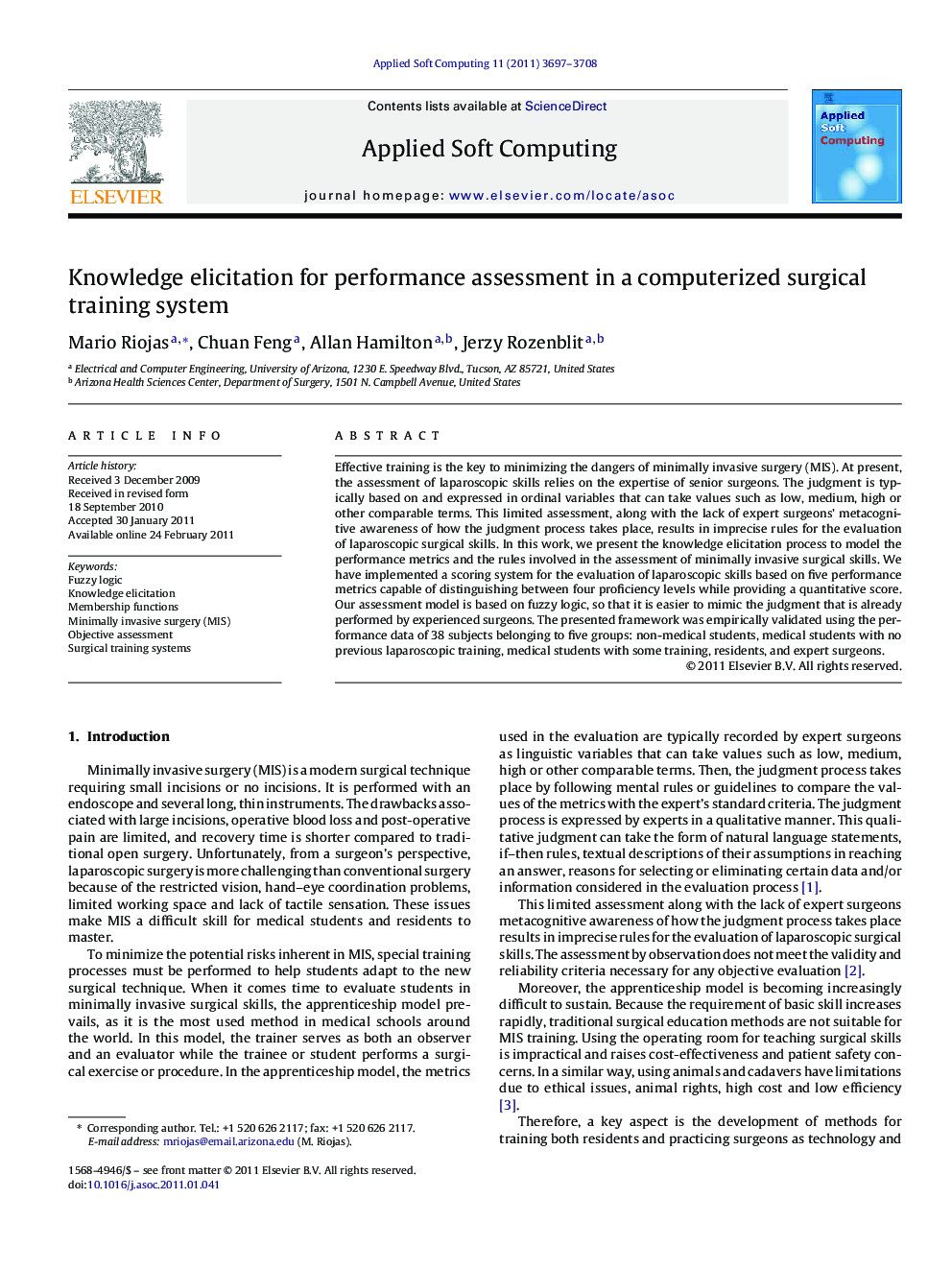| Article ID | Journal | Published Year | Pages | File Type |
|---|---|---|---|---|
| 496516 | Applied Soft Computing | 2011 | 12 Pages |
Abstract
Effective training is the key to minimizing the dangers of minimally invasive surgery (MIS). At present, the assessment of laparoscopic skills relies on the expertise of senior surgeons. The judgment is typically based on and expressed in ordinal variables that can take values such as low, medium, high or other comparable terms. This limited assessment, along with the lack of expert surgeons' metacognitive awareness of how the judgment process takes place, results in imprecise rules for the evaluation of laparoscopic surgical skills. In this work, we present the knowledge elicitation process to model the performance metrics and the rules involved in the assessment of minimally invasive surgical skills. We have implemented a scoring system for the evaluation of laparoscopic skills based on five performance metrics capable of distinguishing between four proficiency levels while providing a quantitative score. Our assessment model is based on fuzzy logic, so that it is easier to mimic the judgment that is already performed by experienced surgeons. The presented framework was empirically validated using the performance data of 38 subjects belonging to five groups: non-medical students, medical students with no previous laparoscopic training, medical students with some training, residents, and expert surgeons.
Keywords
Related Topics
Physical Sciences and Engineering
Computer Science
Computer Science Applications
Authors
Mario Riojas, Chuan Feng, Allan Hamilton, Jerzy Rozenblit,
